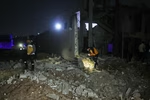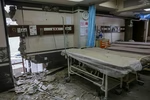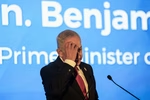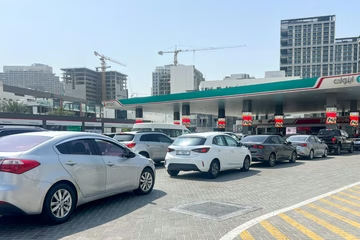State Department: Bosnia cooperative partner against terrorism despite the challenges

Bosnia and Herzegovina (BiH) remained a cooperative counterterrorism partner, despite its limited capacity. BiH has outlawed travel overseas to fight in foreign armed forces since 2014. More than 100 BiH nationals, including FTFs and associated family members, remain in Iraq and Syria. BiH continued to be a willing partner in repatriating FTFs and their family members, the State Department wrote in their latest Terrorism Report.
In December the presidency authorized the Ministry of Security (MoS) to coordinate the repatriation of BiH nationals from Syria and Iraq, although BiH’s capacity to undertake such an operation remains limited. On CT investigations, infighting and stove piping continued to undermine effective cooperation, although the State Prosecutor’s Office (SPO)-led CT Task Force and a separate CT Working Group continued to meet.
Legislation, Law Enforcement, and Border Security
The Council of Ministers (CoM) in November adopted the long-delayed 2021-26 Strategy for the Prevention and Fight Against Terrorism. The document is required by several international organizations and is part of the country’s EU integration process. The strategy attempts to establish mechanisms at all levels of government for the prevention of terrorism and to mitigate radicalization to violence and violent extremism. The MoS-led Intersectoral Coordination Body plan for the repatriation of BiH nationals from Syria and Iraq was adopted by the CoM in August.
The State Investigation and Protection Agency (SIPA) continues to be the lead law enforcement unit performing CT functions. However, poor cooperation with the SPO limits its effectiveness. Though SIPA leadership has long advocated for changes to its Rulebook on Internal Organization that would create a CT department, bureaucratic inaction has delayed the process. BiH does not have clear guidelines governing cooperation among prosecutors, law enforcement, and the intelligence community in national security investigations.
The SPO and SIPA continue to receive training provided by the Department of State’s Antiterrorism Assistance program, the Department of Justice’s Office of Overseas Prosecutorial Development Assistance and Training, the International Criminal Investigative Training Assistance Program, and the Department of Defense’s Special Operations Command Europe. The SPO-led task force met twice in 2022, and the law enforcement-led operational CT working group met seven times. Law enforcement cooperation at a more strategic level suffers from jurisdictional disputes and bureaucratic malaise stemming from BiH’s complex governmental structure and the politicization of sensitive criminal justice matters such as terrorism.
In November the CoM adopted the new Law on Border Control, which improves the regulatory framework on the collection and use of Advance Passenger Information (API). The CoM also adopted a decision establishing an interagency working group on API and Passenger Name Records (PNR) to develop a regulatory framework for the collection and use of both API and PNR. The deployment of the Personal Identification Secure Comparison and Evaluation System (PISCES) terminals at BiH’s four airports continues to progress slowly and requires constant communication between the U.S. and BiH governments to prevent backsliding. The Service for Foreigners’ Affairs (SFA) continues to share information with international partners on migrants entering BiH, and the U.S. Department of Homeland Security Investigations TDY support has provided much-needed training to SFA and expanded the Biometric Identification Transnational Migration Alert Program (or BITMAP) to BiH Border Police.
Countering the Financing of Terrorism
BiH is a member of MONEYVAL (the Committee of Experts on the Evaluation of Anti-Money Laundering Measures and the Financing of Terrorism). Its FIU, the Financial Intelligence Department, is a member of the Egmont Group. In May, BiH prosecuted its first terrorist financing case, which ended in acquittal. Despite the outcome, the case represented a milestone for BiH in building its capacity to counter terrorist financing.
Countering Violent Extremism
In 2022 the BiH national elections generated divisive rhetoric by the country’s ethnonationalist political leaders, unseen since it declared its independence in the early 1990s. BiH’s main religious communities (Catholic, Islamic, Jewish, and Eastern Orthodox) made very limited progress through the Interreligious Council to promote tolerance and confront acts of bigotry and violence directed at religious communities. International and local actors working on countering radicalization to violence made significant efforts to focus beyond Islamist terrorism to include extreme ethnonationalism and foreign influence, as well as domestic drivers of violent extremist ideologies, but BiH authorities are not focused on REMVE groups.
International and Regional Cooperation
The SPO continues to work with the United States, regional neighbours, and EU member states on CT investigations. BiH is a member of or a participating state in the United Nations, the OSCE, the Regional Cooperation Council for Southeast Europe, and the Council of Europe.
Kakvo je tvoje mišljenje o ovome?
Učestvuj u diskusiji ili pročitaj komentare





 Srbija
Srbija
 Hrvatska
Hrvatska
 Slovenija
Slovenija



























































